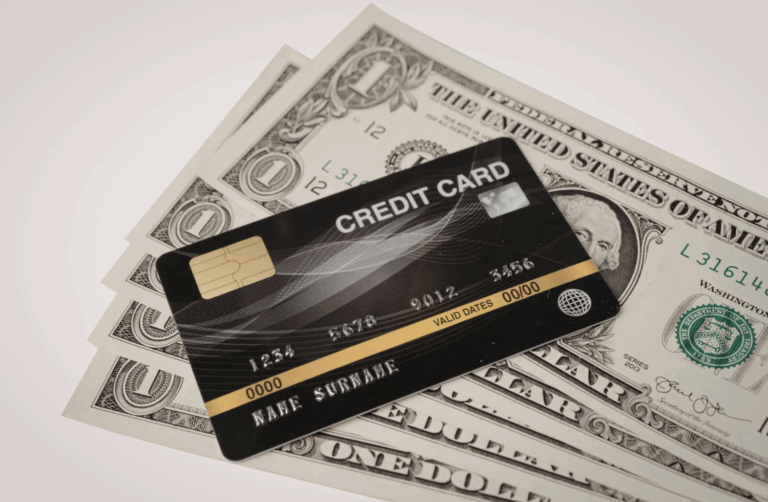A lawsuit from a creditor can be scary and stressful. However, with the right plan and attorney on your side, you can resolve your lawsuit and get out of credit card debt for good. One option to consider is debt settlement.
You might wonder how to settle credit card debt when a lawsuit has been filed. Is that even possible? The answer is yes. However, you must know how to navigate a credit card lawsuit and the right strategy to convince your creditor to settle.
Sued for Credit Card Debt? Here’s Why
You will likely incur a late fee when you’re late on a credit card payment. Plus, your credit score may take a hit. It’s not a great thing to happen, but many people make a mistake occasionally.
However, if you keep missing payments, the credit card company will make multiple attempts to collect the money from you. They may call, text, and email you to demand payment. If your payments are still past due after about three to six months, they may charge off the account. That means they’ve given up trying to recover that money and have passed your account off to an internal collections department or third-party debt collector.
Understand that a debt that’s been charged-off isn’t forgiven. You’re still legally responsible for paying it back to the original creditor or a debt collection agency, and it’ll still be on your credit report. So if you don’t, the company you owe could sue you in civil court for the balance.
How to Settle Credit Card Debt When a Lawsuit Has Been Filed
A lawsuit over a delinquent debt can feel like a worst-case situation. Sure, a lawsuit is definitely not a good thing. But it’s not the end of the world. You can’t go to jail over unpaid credit card debt. And you have options for resolving the matter. Here’s what you should do if you want to settle credit card debt after a lawsuit has been filed.
Respond ASAP
Contact a competent debt settlement lawyer. They will explain your rights and how to avoid getting a judgment placed against you.
Note that when a creditor files a debt collection lawsuit, you’ll receive two crucial sets of documents:
- A court summons is a legal document notifying you of a lawsuit against you.
- A formal complaint letter which outlines the allegations against you.
Pay close attention to these, as they contain extremely important information. That includes instructions for how to respond and the deadline for doing so. Usually, that’s no more than 30 days out. Failing to respond to the court on time could result in a default judgment against you. This gives the creditor legal authority to pursue your unpaid debt through more aggressive means. That can include wage garnishment, liens against your property, and even freezing your bank account.
Also, be sure to respond even if you have a settlement agreement in the works. The creditor may still file for a default judgment. And if the court doesn’t have your answer on file, you’re still at risk of losing in court.
Hire an Attorney
When facing a lawsuit, hiring an experienced debt relief attorney is a good idea. They can walk you through your options, help negotiate a settlement for less than the full amount owed, and verify that the lawsuit is valid. For instance, the judge may dismiss your case if the collection firm made a procedural error. Your lawyer may also share ideas for winning the lawsuit. Or you could be eligible to file a counterclaim. These are all good points to review with a debt relief attorney when discussing your matter.
You should also inquire with a debt help attorney about the following:
- Can the debt be verified? You have the right to have specific details about your debt verified. For example, the lender or collector needs to prove that you are the person who owes the debt and they are the company it’s owed to. Your attorney can request that the entity suing you prove these facts.
- Has the statute of limitations passed? Creditors have a certain amount of time when they can file a debt lawsuit, known as the statute of limitations. Once that period is up, creditors can’t sue you for a debt (the statute of limitations on debt in New York, for example, is three years). Your attorney will be familiar with the statute of limitations according to applicable state laws.
- Were your rights violated? Collectors pursuing consumer debts must follow certain laws under the Fair Debt Collection Practices Act (FDCPA). For example, their collection efforts can’t involve harassing or threatening you. They also can’t share information about your debt with anyone else or show up at your job. The court may throw out the case, and you could file a lawsuit on your own if your lawyer determines that the creditor broke certain debt collection laws.
Decide How You Want to Proceed
Once you’ve reviewed your situation and debt relief options in detail with a reputable debt help attorney, you can decide whether pursuing debt settlement is a good idea. Debt relief attorneys have experience negotiating settlements and working regularly with creditors and their attorneys in these kinds of debt collection cases.
This experience can help ensure you receive the best deal possible without communicating with collectors directly or with annoying phone calls. Plus, you don’t have to deal with the stress that comes with having outstanding debt that is now in the lawsuit stage. Some things are better left for experienced professionals to resolve so you know that the matter is handled correctly and won’t creep back up in the future.
If your financial situation is dire and you owe an enormous debt to many creditors, your attorney may decide it’s better to file bankruptcy. Again, a legal professional can walk you through the process of first qualifying for bankruptcy and recommend the best type to pursue.
Make an Offer
Once you’ve determined that debt settlement is the best choice, it’s time to present an offer to your creditor. Again, your attorney can handle the stressful negotiations, so you don’t have to. They are likely familiar with the legal teams of various creditors and know what needs to be done to secure a settlement.
If you don’t have enough money to settle with a lump sum payment, your lawyer may be able to negotiate a monthly payment plan that prevents your wages from being garnished or bank accounts frozen. Remember, your creditors want to get their money back. So, a deal that allows you to make several smaller payments instead of one large lump sum payment is still better than no payment.
It’s in your best interest to act quickly when being sued for unpaid credit card debt. Debt settlement may still be on the table, but you’ll need the help of an experienced attorney. Tayne Law Group has assisted borrowers with debt management and resolutions for over 20 years. We offer a consultation with one of our experienced debt relief attorneys. They can go through your options and explain our process. Then, you can decide if hiring an attorney is right for you. When ready, call our law firm at (866) 890-7337 or fill out our short contact form. We never share your information, and all discussions are confidential.





